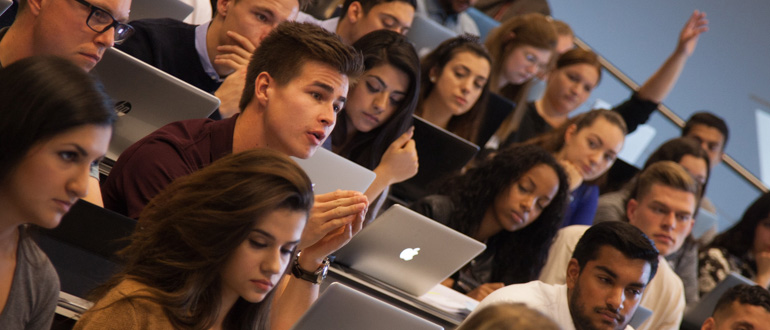Teaching at Department of Forensic Medicine
by Peter Mygind Leth
At the Department of Forensic Medicine teaching of medical students has a high priority. Forensic Medicine has been tought as a separate university course for a decade now, it is a very visually dominated course, where photographic material, specimens and demonstrations play an important role in the teaching.
By tradition, forensic medicine is defined as using the medical science in service of the judicial system, but we are also very keen on teaching the students that forensic medicine is also social science. The forensic investigations may provide important information of great interest to the prevention and avoidance of many illnesses and accidents. By teaching forensic medicine, we are therefore aiming at giving the students an understading of the necessity to investigate the circumstances of a death with the purpose of learning by experience.
The forensic way of thinking
Forensic medicine differs from other medical sciences by not focussing on treatment, but instead at questions like "how can these lesions or this disease happen?" It is very important to make the students understand this way of thinking, you could call it the "forensic way of thinking". This is important to any physisian. As a doctor at the Emergency receiving a child that fell and got hurt, it is important to notice and consider whether there might be a case of voilence. Especially if there is a mismatch between the explanations of how the fall happened, and the findings from the examination. It is important that the doctor notices that an elderly man with a chronic lung disease might have been exposed to asbetos in his working life. It is important that the doctor at a post-mortem examination notices if there is a suspicion of criminal offence or other circumstances that might need further examinations.
Forensic medicine is part of many of the modules offered in the teaching to the medical students at University of Southern Denmark. These are very different subjects , such as traffic medicine, work-related lung diseases, sudden unexpected deaths, and examinations of asylum seekers exposed to torture, only to mention some examples. By tradition, forensic pathologists do teaching about pharmaceutical legislation, this subject is incorporated in module K13. This module also contains certain parts of the forensic medicine that are not part of other modules.
The department welcomes students at clinical study visits or research projects
Forensic medicine is open to students interested in visiting the department, for instance in connection with clinical study visits or research projects. We have the possibility of offering demonstrations to medical students in relation to the teaching in forensic medicine, however, not at the first part of the study. Besides teaching to medical students, the Department of Forensic Medicine also teaches other groups, for instance the Police, radiographers, nurses, other medical specialists, forensic technicians and many others. The Department of Forensic Medicine at University of Southern Denmark is involved in educating future Foresic Pathologists, a task that we carry out in collaboration with the The Danish Health Authority and the Education of Graduated Doctors in Southern Denmark and the two other forensic departments in Denmark. Furthermore, through the Society of Forensic Medicine, we participate in the post graduate teaching of forensic pathologists, doctors specialised in clinical pathology and other doctors.
